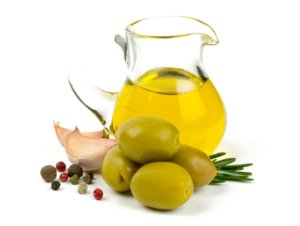Fats for better or for worse
 Fats or lipids constitute an important source of energy that is especially useful for the muscles and the heart. They also help stabilize your blood sugar levels. The different fats have many other functions such as supporting cellular construction and the hormone system, immune system, and nervous system. The essential omega-3 and omega-6 fatty acids, which we get from our diet, have a particularly important role.
Fats or lipids constitute an important source of energy that is especially useful for the muscles and the heart. They also help stabilize your blood sugar levels. The different fats have many other functions such as supporting cellular construction and the hormone system, immune system, and nervous system. The essential omega-3 and omega-6 fatty acids, which we get from our diet, have a particularly important role.
Modern diets, unfortunately, contain too much omega-6 and/or too little omega-3, which may lead to an array of health issues – including weight problems.
| Saturated | Mono-unsaturated omega-9 | Poly-unsaturated omega-6 | Other poly-unsaturated omega-3 |
|
With cholesterol: Without cholesterol: |
Especially olive oil Rapeseed oil Avocado, almonds, sesame, peanuts |
Most plant oils from e.g. Nuts, kernels, seeds. |
Mainly oily fish and cod liver oil – in the form of EPA/DHA, which the body can easily utilize. Linseeds contain ALA (alpha-linolenic acid), which many people have trouble with utilizing. |
|
Cholesterol is necessary for all cell membranes, sex The body produces most of its |
Omega-9 fatty acids are particularly vital The body is able to synthesize omega-9 |
Essential, must be provided through the diet. Promotes inflammation, cramps, and the risk of atherosclerosis Many people consume too much |
Essential, must be provided through the diet Counteract inflammation, cramps, and the risk of atherosclerosis. Many people don’t get enough |
Don’t be afraid of fat or cholesterol – but avoid the inferior sources
- Eat proper amounts of the good sources from of fat and cholesterol from oily fish, shellfish, lean meat, eggs, avocado, butter, nuts, kernels, seeds, and unspoiled plant oils from olive, rapeseed, and coconut. You may even want to take a fish oil supplement.
- Avoid heavily heated fats, especially from charred meat, deep-fried and/or breaded foods.
- Avoid refined fats and trans-fatty acids from e.g. margarine, cakes, cookies, French fries, coffee creamers, and microwave popcorn. These fats are often referred to as hydrogenated fats.
You should do anything you can to avoid trans-fatty acids
- Trans-fatty acids are formed by extreme heating and industrial processing of vegetable oils.
- The body is unable to utilize trans-fatty acids, and they cause cell membranes to leak, thereby enabling toxins to enter the cells.
- This increases your risk of cardiovascular disease, poor insulin regulation, overweight, inflammation etc.
Which oils are the most suited for frying, cooking and heating?
Generally, the more unsaturated oil is, the more vulnerable it becomes to heat, oxygen, and light.
It is therefore best to fry your food in mono-unsaturated or saturated oils such as e.g. virgin olive oil, coconut oil, or butter.







